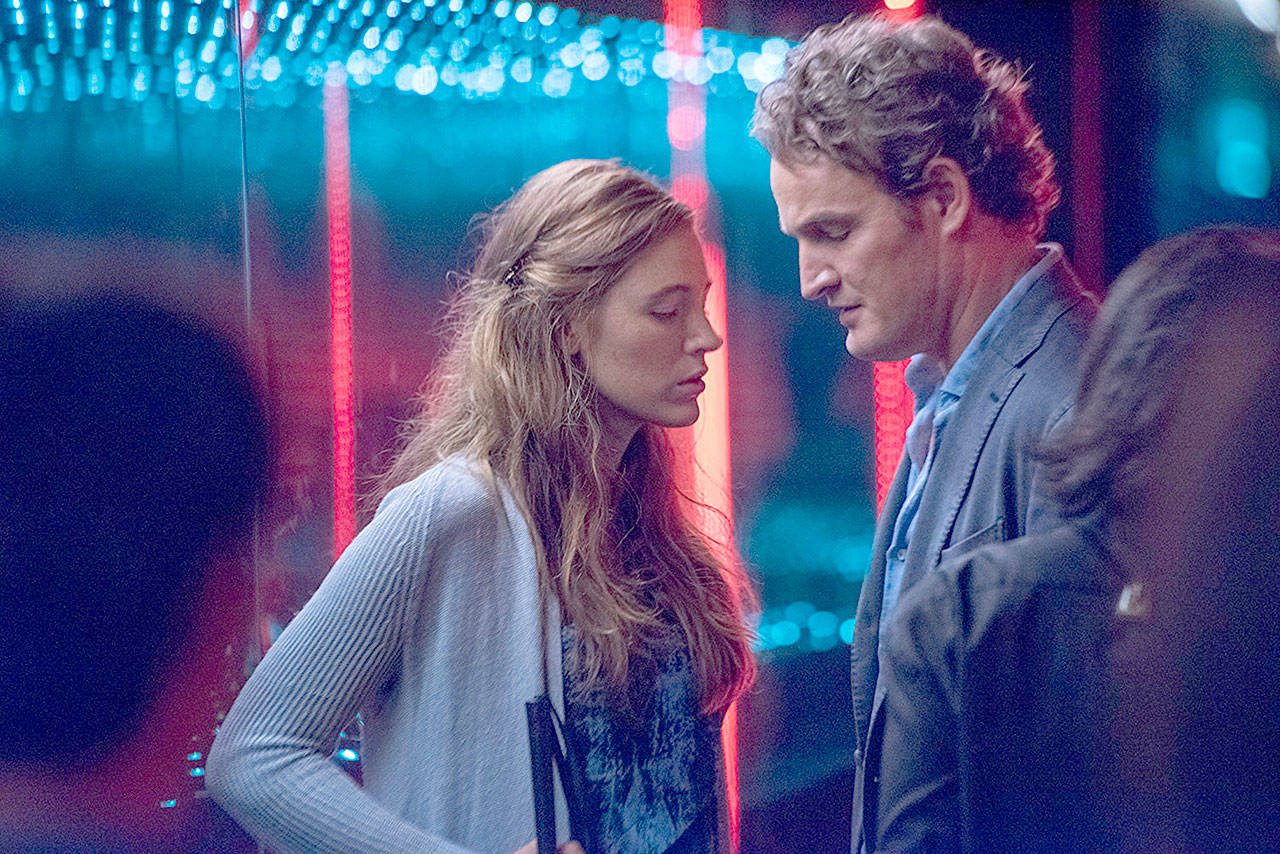By Katie Walsh / Tribune News Service
The premise of “All I See Is You,” wherein Blake Lively stars as a blind woman who has her sight restored, sounds, on the surface, unfortunately sentimental. Thankfully, the film itself is far weirder than that. Director and co-writer Marc Forster explores questions of identity in relationship to sensory experiences in this erotic-ish thriller, about a woman whose whole self opens up to the world — for better or for worse — after a cutting-edge eye surgery restores the sight she lost as a child in a tragic accident.
Forster, who wrote the script with Sean Conway, seems fascinated by creating a cinematic experience of blindness, or severely impaired sight. It’s a unique viewing experience, as he weaves a visual spectacle of morphing light and color, melding into abstract shapes, a kaleidoscope of fractured, fantastical images coupled with detailed sound design. This is an attempt to represent the perspective of Gina (Lively) and her experience of the world.
Gina lives in Bangkok with her husband, James (Jason Clarke), for his job. But not much about their background or past is fleshed out, beyond her flashbacks to the terrible childhood car accident that took her sight and killed her parents. He’s the protector of his vulnerable wife, and seems to both relish and strain at the responsibility of caring for her and helping her navigate her small world.
“All I See Is You” posits that our selves are defined by how we experience the world.
If a sense is taken away or restored, it changes the way we see ourselves, the way we move, how we relate to others. With her sight back, Gina wants to eat up the world in great gulps — explosions of color at the flower market, faces in the crowd, a kayaking trip, her own face with makeup, her body in a sexy dress, a Spanish peep show with her sister and brother-in-law. With her sight intact, she becomes a different person — it affects how she presents herself to the world, changes her sexuality — and that doesn’t sit well with her husband.
As an actor, Clarke seems to shape-shift if the light hits him in a certain way. He’s at once handsome, broad and guileless, but at the right angle his visage darkens. As he toes the line between loving and sinister, we never quite trust James. He leaves blind Gina for a minute too long outside a nightclub bathroom, leaving her calling his name helplessly — later he seems wary of her, when she changes as the result of her surgery. His power crumbles as she gains hers, and we’re never quite sure how exactly he might try to hold onto that power.
There are moments of the experimental, abstract and sensual in “All I See Is You,” where Forster keeps the audience utterly unmoored, questioning where this story could possibly go. That sensation is a rare experience in most genre-based cinema, and with a few notable exceptions, “All I See Is You” is refreshingly resistant to predictability.
But for all of Forster’s experimentation, and his willingness to prod at the strange, jagged edges of this relationship, at the jealousy and sex and violence, he ultimately rejects darkness. The final message may tip toward sentimental, but it’s in line with the film’s embrace of light all along.
“All I See Is You” (2½ stars)
A blind woman (Blake Lively) regains her eyesight in this film that (mostly) eschews sentiment for eroticism and suspense. Director and co-writer Marc Forster works hard at creating a cinematic experience of blindness.
Rated: R for strong sexual content/nudity, and language.
Now showing: Alderwood Mall, Meridian
Talk to us
> Give us your news tips.
> Send us a letter to the editor.
> More Herald contact information.

























